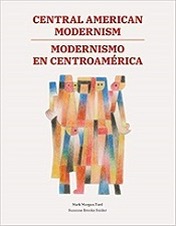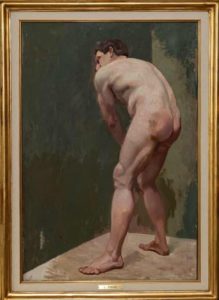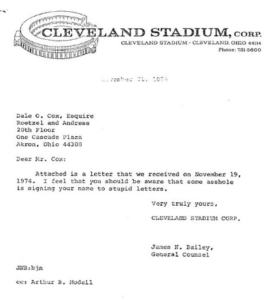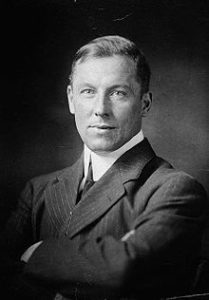Bits and Pieces
Remembering… Waiting for the Bus Back Home
It was very exciting. My godmother, Jean Kerr, had gifted me a course in painting for my 14th birthday. The classes were given on Saturday mornings in Hempstead, about five miles north of my hometown of Rockville Centre.
Getting to and from the lessons by bus would cost 50 cents, 25 cents each way. For cleaning the bathroom once a week, my mother paid me 60 cents – enough to cover the bus fare with a dime to spare.
As far as I was concerned, it was a perfect situation. However, I didn’t anticipate two things.
1. The bus that would bring me home departed from the terminal about a half-hour after class, which meant I had to spend 25 minutes in the terminal, waiting for it.
2. There was a Pizza Parlor next to the waiting area.
I was, as most boys are at 14, always hungry. And the aroma wafting from the open windows of the pizza shop was irresistible. Having spent 25 cents on the morning bus, I had 35 cents left in my pocket. I could have a slice of pizza. Or I could take the bus home. I could not have both.
The first Saturday, I stayed strong – for almost 20 minutes – before yielding to temptation. My resolve weakened as each week passed. So, every Saturday, after wolfing down that slice of pizza, I was left with no choice but to pick up my bag of art supplies and head off on the 5-mile walk home.
My 90-minute walk included about 30 minutes of passing through a “bad part” of South Hempstead. I was eyed suspiciously and occasionally threatened by neighborhood kids, but never physically assaulted. Scaring me was probably enough “fun” for them. Still, I clutched my palette knife, which was about as dangerous as a plastic spoon, under my jacket sleeve until I reached Rockville Centre.
What I Believe About Stress, Self-Improvement, and Procrastination
A friend writes: “I didn’t really want to make that move. I was comfortable doing what I was doing, and it was working. But I had the sense that if I wanted to get to the next level, I had to make the leap. In retrospect, I’m glad I did.”
It’s a law of nature: Any effort to improve anything requires energy. This is especially true of self-improvement.
The energy needed to acquire knowledge and skill, to develop useful habits, and to strengthen the psyche has to be sufficient to overcome three ever-present hurdles: doubt, ignorance, and laziness.
The recognition of the energy required to overcome such hurdles is felt as stress. Stress is the inevitable emotional response between understanding what work is required to meet a goal and doing the work. The moment action is taken, stress diminishes.
I try to remember that every time I’m feeling stressed – and putting off – a challenging obligation. The second I begin to deal with it, I’ll start to feel better.
What I Believe: About Urban Violence in America
12 major US cities have been seeing a significant rise in violent crime. In the lead is Chicago, with more than 800 homicides so far this year.
If Chicago is the leader in terms of gross numbers, Philadelphia takes the number one spot in terms of murders per capita. By the end of November, the city had racked up 525 murders. And with a population of 1.6 million, that’s a homicide rate of 33 murders per 100,000 people – more than four times higher than the 2020 US homicide rate of 7.8.
Other cities that broke their previous homicide records in 2021 include Portland, Oregon; Austin, Texas; Indianapolis, Indiana; Louisville, Kentucky; St. Paul, Minnesota; Albuquerque, New Mexico; Columbus, Ohio; Tucson, Arizona; and Rochester, New York. And that’s to say nothing of other violent crimes that soared in 2021, including non-lethal shootings, rapes, robberies, and physical assaults.
If you rely on the NYT, The Washington Post, or prestige TV for your news, you have probably heard little to nothing about this. That’s because these are largely Black-on-Black crimes that are taking place in Democratic-run cities with high percentages of African-Americans in their mayors’ offices, their police departments, and their court and judicial systems. Facts that do not support the Woke’s favorite theory: that every social problem in America is due to systemic racism.
Ironically, those same news sources have recently begun to report on a lesser crime – the pandemic of smash-and-grab lootings that have become common in many of these same cities.
Why report on theft but not homicides?
First, because the lootings have gone viral on social media. They are undeniable. But second, and more importantly, because they are taking place in the suburbs, upscale neighborhoods, and luxury retail centers where the Woke live.
The Best TED Talk Ever?
Last week, I came across a TED Talk that was given in 2008 by Dr. Jill Bolte Taylor, a scientist specializing in the anatomy of the nervous system. It was the first TED Talk to ever go viral on the internet.
You can watch it here.
When I saw it in 2008, I thought it was amazing and revelatory. When I watched it again this time, it was just as good.
In it, Dr. Taylor recounts what she learned about the way the brain works from her own experience with a massive stroke.
What I thought was interesting:
She explains that the brain has two hemispheres that look identical but have very different roles.
* The Right Brain experiences life in the present moment. It perceives the world around us in a very fundamental way – sensing colors and shapes and odors and sound, but in a sort of blur, without distinctions.
* The Left Brain is the part of the brain that has self-consciousness, that says “I am.” It thinks with language, linearly and methodically. It collects details, compares them to past details, and makes future projections.
The stroke left her with a fully functioning Right Brain and a Left Brain that was only active momentarily – and even then, only partially. It left her in the sort of state one might experience when taking hallucinogenic drugs.
What I loved especially:
* She could not define the boundaries of her body because the atoms and molecules of her arm felt disconnected from the atoms and molecules of the space around and between them. Because she could not demonstrate the boundaries of her body, she felt expansive, and that felt beautiful.
* She was not frightened by the experience, but felt stress-free and peaceful. The experience was almost euphoric. “I’m having a stroke,” she thought. “This is so cool!”
* And I love this quote from her: “We are the lifeforce power of the universe with two cognitive minds.”
I loved all this because it dovetails with a book I’ve been writing for 20 years. Working title: A Unified Theory of Life.
No Justice for Jussie Smollett
It was the story of the year. Hollywood was outraged. The ladies on The View went berserk. Even President Biden and VP Harris tweeted their outrage. A “modern-day lynching,” she called it.
Not everyone was taken in.
* Dave Chappelle
* Candice Owen
* Tracy Morgan
3 Words That People Are Always Getting Wrong
* Bemused sounds like it means amused. It actually means confused or bewildered. Example from At Home: A Short History of Private Life by Bill Bryson: “Nothing, however, bemused the Indians more than the European habit of blowing their noses into a fine handkerchief, folding it carefully, and placing it back in their pockets as if it were a treasured memento.”
* Nonplussed sounds like it should be a synonym for stoic or stolid. It’s actually one step beyond “bemused” – so confused/bewildered that you’re unsure how to react. Example from Moby Dick by Herman Melville: “Ignorance is the parent of fear, and being completely nonplussed and confounded about the stranger, I confess I was now as much afraid of him as if it was the devil himself who had thus broken into my room at the dead of night.”
* Noisome sounds like it means noisy. Actually, it has nothing to do with sound. It refers to odor. Something that is noisome has an offensive smell. (It’s related to the word “annoy.”) Example from Much Ado About Nothing by William Shakespeare: “Foul words is but foul wind, and foul wind is but foul breath, and foul breath is noisome; therefore I will depart unkissed.”
Worth Quoting
* “Reality cannot be ignored except at a price; and the longer the ignorance is persisted in, the higher and the more terrible becomes the price that must be paid.” – Aldous Huxley
* “Think about what you want today and you’ll spend your time. Think about what you want in 5 years and you’ll invest your time.” – James Clear
* “Tell me and I forget. Teach me and I remember. Involve me and I learn.” – Benjamin Franklin







